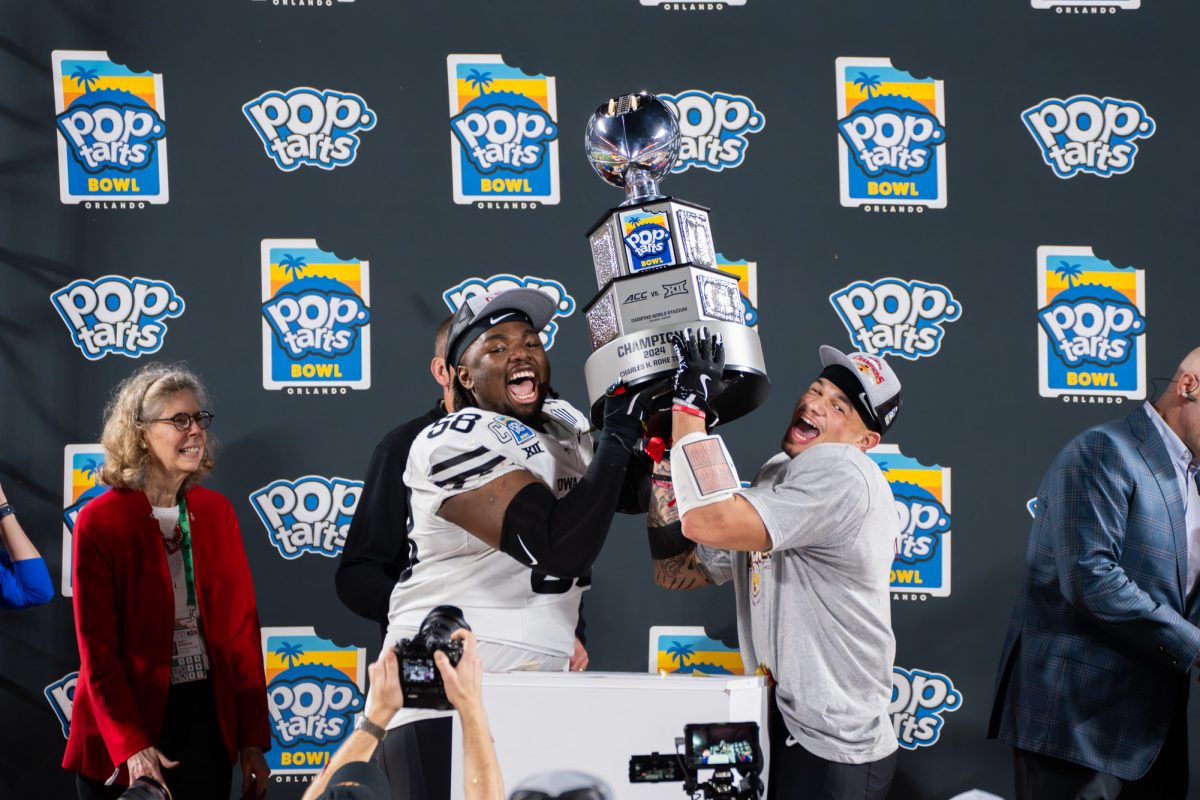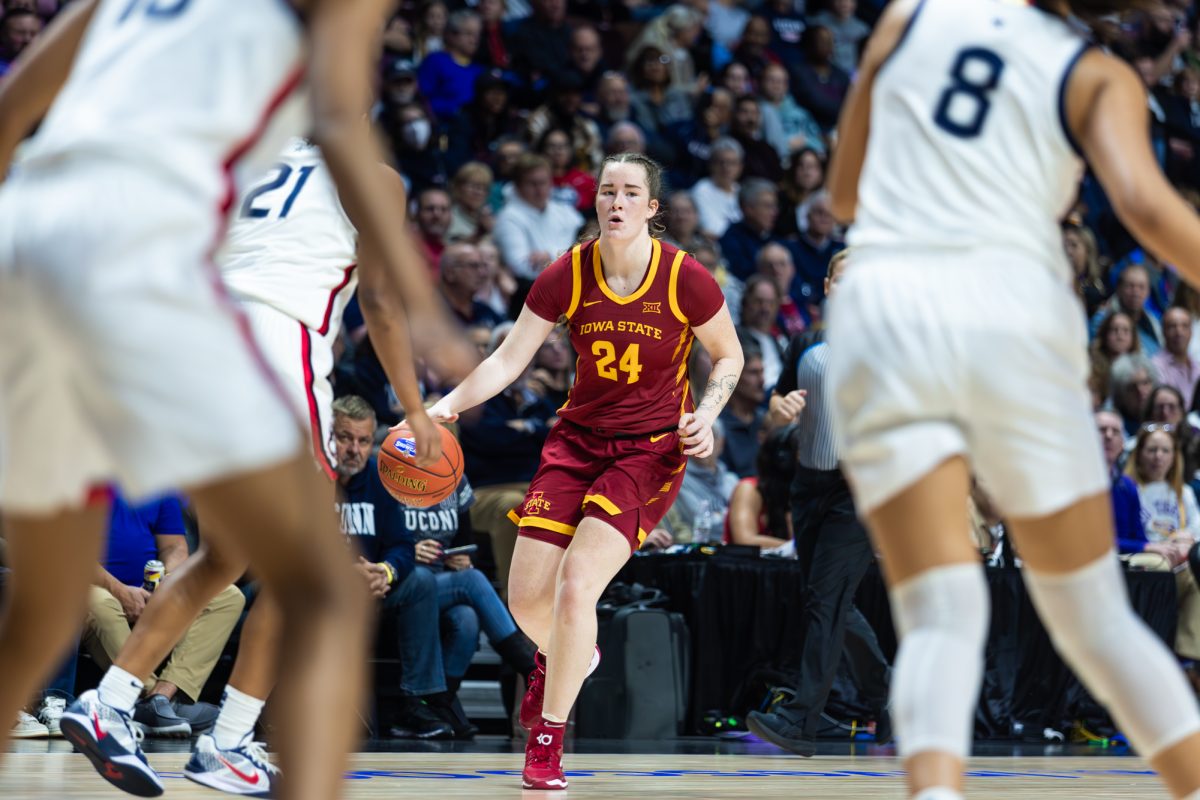Minding your MANNRS
February 6, 2001
I had the good fortune to go to a club meeting that felt more like a family than a business exercise. As the club members came in at the end of the day, greeting each other, kidding around, and catching up with one another, I was quickly enveloped in a sense of community that is sometimes all too rare in the competitive, self-centered university setting. Then I got to talking with the club members.That was when I was really impressed.Graduate students balancing lots of extracurricular activities, scientific research, community involvement and academics.Undergrads with two or three majors getting ready to participate in a study abroad program. Winners of prestigious scholarships taking 20 credits and planning to attend national conventions.If the club members weren’t so welcoming I probably would have begun to feel like a real slacker.The future of agriculture seems pretty bright when this club in the ISU College of Agriculture is full of high-achieving, aspiring scholars and leaders. The irony is that it’s a safe guess that when you spot members of the club on campus, you may never guess they were in the College of Agriculture at Iowa State. The club is one chapter in a national organization called MANNRS, Minorities in Agriculture and Natural Resources Related Sciences. The ISU chapter consists of predominantly African-American undergraduate and graduate students in the College of Agriculture, although there are members with Latino and Asian heritage as well. This group will make you kiss any lingering stereotypes about big belt buckles and ten gallon hats good-bye in a hurry.”There is so much more to agriculture than riding on a tractor,” commented Shelly, a graduate student from Chicago. She gets to field the questions from her urban friends about studying crop production and plant physiology at Iowa State. She pointed out that industries from brewing to Wrigley’s Spearmint need to have plant specialists to transform the crop to a processed product. “Companies like Bayer have agriculture and environmental departments. I sure didn’t spend over six years in school to go farm.”Myron, an undergraduate triple major in agricultural business, political science and economics, resonated with Shelly. “There is more to ag than farming.” When I asked him why he chose to come to Ames after growing up in Chicago, he grinned. “I wanted a different aspect in my life.” He sure got that. One of the most frustrating parts of his classwork was going to an economics class for agriculture business majors. All the example problems were using units like bushels and acres and he quickly had to learn the language. He was initially frustrated with the assumption that everyone in the class had an inherent knowledge of Iowa agricultural lingo. However, now he says that through the questions he asked in class, his perspective created an opportunity for everyone to learn more. One of his classmates, a farm kid from southwest Iowa, not only sketched out combines during class so that Myron could follow along, but through Myron, he has gotten involved with MANNRS.So what is it like to be the only minority student in your class? Iowa State has certainly made efforts to welcome women to non-traditional majors, but what about the students of color who are often not even Iowa natives?”I was never treated like a minority until I got here,” commented a graduate student from Virginia. “That made me feel subordinate until I recognized it was just a label.”Iowa State was certainly a culture shock for students from large urban areas or students who obtained undergraduate degrees from historically African-American colleges like Tuskegee University. “It was tough,” one graduate commented candidly. “Sometimes I was treated like I wasn’t supposed to be there.” He is the first black graduate student in his department. “The ‘good old boy’ network is alive at Iowa State.”Shelly was quick to point out she sensed a transition occurring within the College of Agriculture and that her presence had been well received, even if she didn’t fit the mold. “I like the atmosphere in the College of Agriculture,” said Lakisha, a sophomore in agricultural business and economics. The winner of a prestigious scholarship is planning to study abroad in Costa Rica in addition to serving as a MANNRS officer. She credits the MANNRS advisers, Nina Grant, Mary de Baca and Lita Rule with creating a comfortable support network among students of color in the College of Agriculture.What can be done to break down the barriers encountered by minority students? The answers were as diverse as the students themselves. Whether through educating professors to provide examples beyond traditional Iowa agriculture, empowering blacks or even dropping the use of the word “minority,” the members of MANNRS certainly see areas within the College of Agriculture to make the college more inclusive. Fortunately, there is at least one group of future leaders of agriculture that has the enthusiasm to be the pioneers.Rachel Faber is a senior in agronomy from Emmetsburg.






